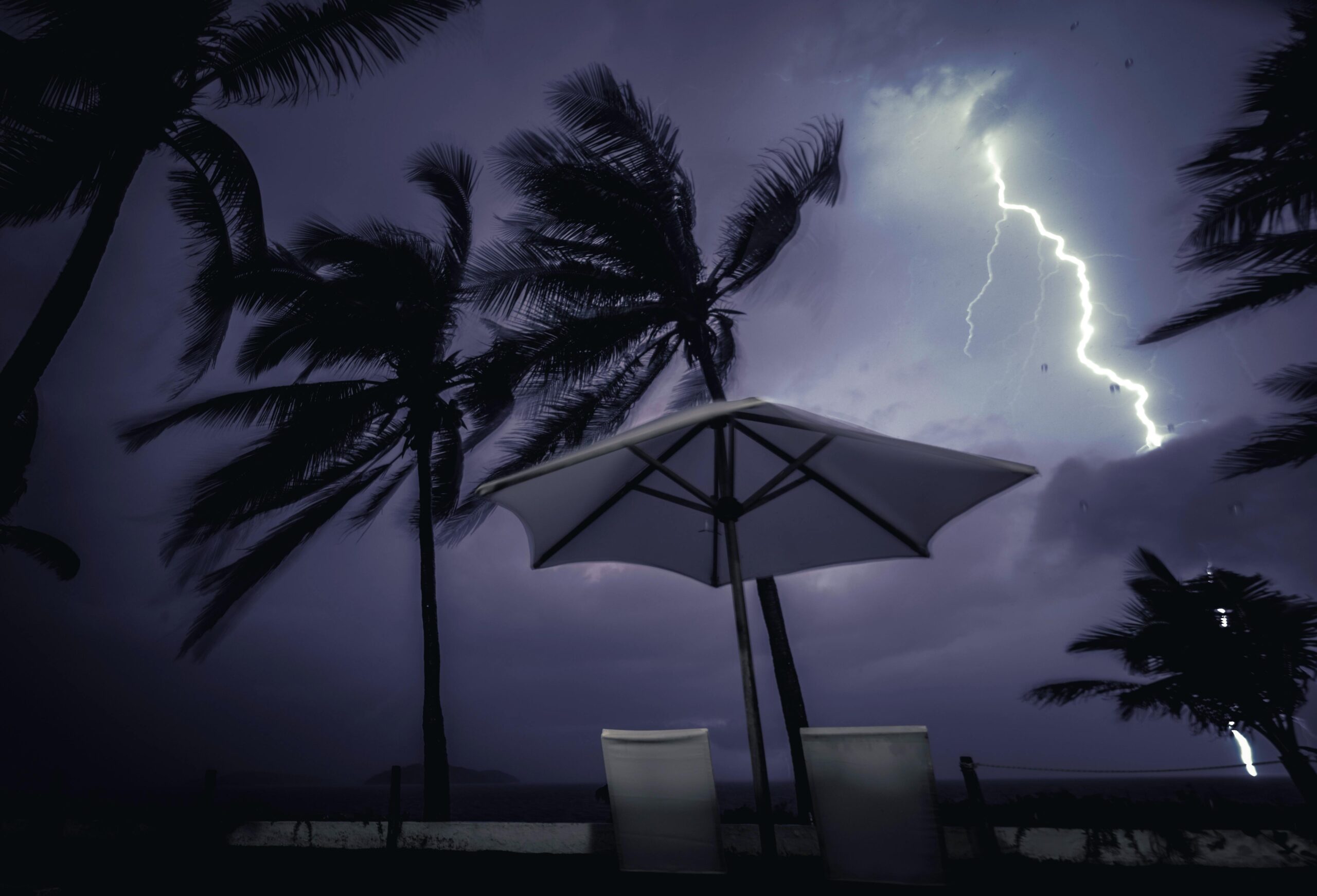Introduction to Does Lightning Strike Outdoor Swimming Pools

Hot summer day is the best time to spend swimming as it is one of the most refreshing things to do. However, with the arrival of storm clouds, lots of swimmers ask themselves the question: does lightning strike outdoor swimming pools? It is not necessarily the question of curiosity but the question of safety, and the answer may be life-saving.
Why This Question Matters for Swimmers and Homeowners
In case of swimmers, it is necessary to be aware of the dangers of lightning. In a few seconds, a peaceful pool game may become a life threatening event because of a sudden thunder storm. In the case of homeowners that have a privately owned pool, the issue extends beyond the safety of individuals and includes the destruction of pool equipment, buildings and the surrounding property around the pool by lightning hits. Covering this question will assist both camps to make good decisions regarding when to get into the water and when to get out.
Common Misconceptions About Lightning and Pools
One of the myths is that the electricity of lightning is neutralized by chlorine or the pool chemicals. The second myth is that enormous bodies of water such as lakes or oceans are the only ones in danger. The truth of the matter is that water is a perfect conductor of electricity and a tiny back yard pool can be fatal in case of lightning strikes close to it. Such confusions usually cause unnecessary risks among the swimmers and hence it is the reason why clarity on the subject is so necessary.
The Lightning and Outdoor Swimming Pools
What happens when lightning strikes on water?
The nature of electricity to move outwards and not down in water is the reason that within a radius it can move far in a very short period of time. This implies that any person who was in the water; even many feet off the point of impact may get a harmful, even deathly, electric discharge.
How Outdoor Pools Differ From Indoor Pools in Risk
The use of roofs and structures that tend to adhere to lightning protection standards shield indoor pools and therefore are significantly safer than outdoor pools in storms. Outdoor pools on the other hand are entirely open to the sky, having no overhead covering. To be in a pool during a thunderstorm is just like being in an empty field it exposes the swimmer to being struck by lightning.
Scientific Explanations of Lightning Conductivity
Lightning is a high-energy phenomenon with an average strength of 300000 volts. When impregnated with salts and minerals, water is a good conductor, particularly when mixed. Even the chlorinated pool water is conductive by having dissolved minerals. When lightning energy gets into the pool, it spreads very fast and the whole water body becomes unsafe no matter how large it is.
Safety Risks of Lightning Striking Outdoor Swimming Pools

Immediate Dangers to Swimmers
Electrocution is the greatest danger. A heart attack can be halted, burns may result, or neurological damage can occur as a result of a strike. Although it may not cause death, the shock may disorient the swimmers, and hence they are at risk of drowning. Among the children and weaker swimmers, the risk is even higher.
Environmental and Structural Risks to Pools
Besides causing harm to humans, lightning may destroy pool systems. Electrical spurts can cause a burn to the pump, filters, and heaters of the pool. Even the surrounding surfaces such as decks, metal railings and lights might be electrified and anyone in the area would be in danger despite the fact that he or she is not in the water.
Myths vs. Facts About Lightning Strikes in Pools
- Myth: The lightning does not conduct in the pool because the chemicals in the pool prevent it.
- Fact: Chlorine has no effect in reducing conductivity.
- Myth: Lakes or oceans are the only dangerous ones.
- Truth: Small pools are dangerous too.
- Myth: When it is not raining, then it is safe to swim.
- Fact: Lightning strikes are common before it rains.
Preventive Measures and Safety Guidelines
Recognizing Storm Warnings and Taking Action
The thunder or lightning is a clear warning. Experts advise one to get out of the pool when he hears the first thunder. Storms move at a high speed and lightning can be delivered several miles away of the storm centre.
Safety precautions to be taken by Swimmers.
- Whenever thunder strikes break out of the pool and enter.
- Do not stand on damp pool decks or metallic things.
- Remain in a completely closed structure until at least 30 minutes after the final thunderclap.
How Pool Facilities Handle Lightning Risks
The use of public pools is regulated by security measures. Lifeguards usually evacuate the swimmers once they notice the first evidence of a storm and close the facility till it is safe. These safety measures can seem inconvenient but the rules are informed by lightning safety research that has been well established.
Real-World Cases and Studies
Documented Incidents of Lightning Strikes in Pools
Several cases have been reported in the world of swimmers being injured or even murdered by lightning in pools. Electric shocks have been caused even during strikes around a pool, which highlights the fact that the situation is quite hazardous.
Lessons Learned From Real-Life Events
The major part of all recorded accidents has one thing in common, swimmers mistakenly undervalued the speed of storms or did not pay attention to the first sign of thunder. The examples demonstrate the necessity of listening to warnings and responding promptly.
Expert Insights and Research Findings
According to the National Weather Service and other safety experts, once you hear thunder, you are close enough to be hit. Research also indicates that a large number of lightning accidents at the pools is due to the fact that individuals assume that short storms cannot be dangerous or even lead to direct hits.

Conclusion
Safety First – What You Should Always Remember
Do not be in a swimming pool when it is a thunder storm. When struck by thunder or lightning one has to come out and wait 30 minutes after the thunder has cleared and then only get back. Convenience should never be given more priority than safety.
FAQs
Does lightning strike outdoor swimming pools more often than lakes?
Not necessarily. Lightning may fall upon any body of water of any size. The danger of the pools is also very critical due to the crowded space and conductive materials around the pools.
Is it safe to swim right after a thunderstorm?
It is advised by the experts that one wait an hour or half after the last thunderclap before getting back to swimming. This will enable the storm to pull out well to minimize the danger.

